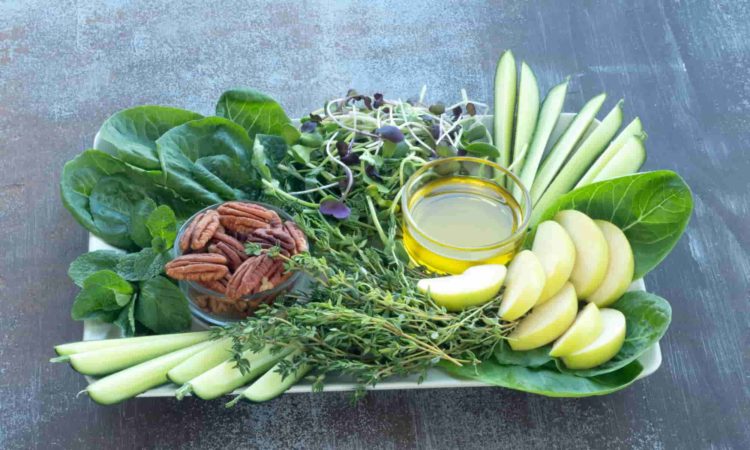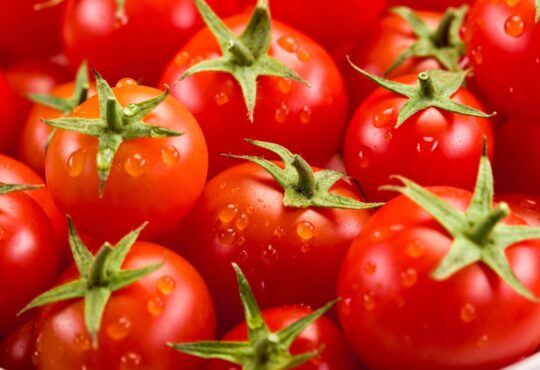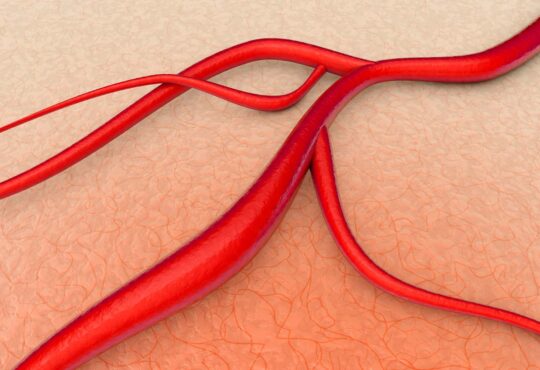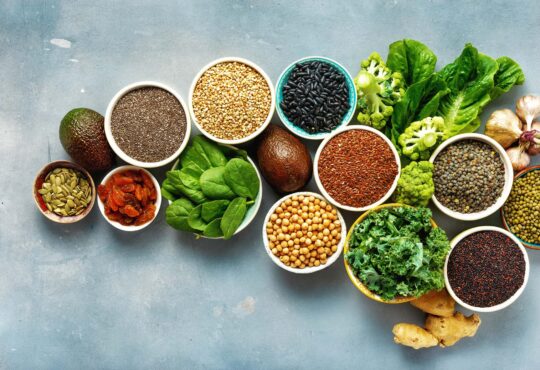Weight is a Brain-Gut Issue, Not a Metabolic Issue

That’s paraphrasing one of the leading experts on the biology of taste and craving.
Dr. Charles Zuker, Ph.D., is a Professor of Biochemistry, Molecular Biophysics, and Neuroscience at Columbia University – plus an Investigator for the Howard Hughes Medical Institute.
He recently answered questions on Andrew Huberman’s podcast.
He didn’t put forth any great solution to weight management, but clearly, anyone struggling with their weight needs to pay attention – because the answer doesn’t lie just in fighting your metabolism, as so many weight loss “experts” tell you.
Technically and in the long run, how much weight you carry as excess pounds is determined by how many calories you consume.
However, there are a lot of factors that influence the final result.
Just telling people to “Eat less and move more” (to burn more calories) is not exactly wrong, but far from sufficient to help people struggling with more than just a few excess pounds.
Besides, it’s proven a near-complete failure.
Dr. Zuker does suggest a solution through Conditioned Taste Aversion.
But first, you need to understand it’s about far more than just taste.
You May Like Sugar, but Craving Sugar Goes Deeper
We’re born liking sugar because it signals to us the food it’s in is rich in the energy (carbohydrates) we need. But it’s not the taste, much as we may like it.
Our brains and our internal organs are constantly signaling to each other. Your organs, including your stomach, send signals to your brain. Your brain is constantly monitoring your physical state.
When you consume food, your stomach’s receptors detect what you’re eating – and report this back to the brain.
That is, you have receptors for sugar, amino acids (protein) and fatty acids. These receptors do NOT depend on your taste buds.
Dr. Zuker has carried out experiments on removing tastebuds for sweetness from mice.
Without those, the mice cannot taste the difference between sugar water and plain water. However, given a few days, they consume the sugar water instead of plain water.
They can’t taste the difference, but their guts signal the presence of glucose to the brain, and so their brains tell them to prefer the sugar water.
Your gut also has receptors signaling to the brain the presence of amino acids and fatty acids.
This is a slow signaling process because it takes time for the brain to decide to prefer sugar water.
But, For Us, Processed Foods Short-Circuit the Natural Controls
When you eat a typical American meal at a restaurant or buy typical food in a supermarket, you’re not getting natural food.
You’re getting something super processed to appeal – right now! – to your deepest, most primitive appetites. The usual slow-signaling of the gut-brain axis is short-circuited, becoming fast-signaling instead.
The food companies remove vitamins, minerals, fiber, antioxidants, and phytonutrients – the entire natural matrix of food. We get foods that aren’t just sweet, but high-fructose corn sugar. Not just fatty, but pure fat. Not just containing amino acids, but packed full of more protein than any natural food.
Your gut-brain axis has no chance to compare the value of foods. It’s hijacked by the near-instant reinforcement.
Sweet/salty/fatty = fast rush of pleasure – and we can’t get enough.
We crave the taste of foods we know are high in calories and low in nutrition but feel helpless against the cravings because they’re both wired into our nervous systems – and highly reinforced by the ease of obtaining unhealthy foods at restaurants and supermarkets.
So, is the cure for obesity banning restaurants and supermarkets?
Obviously, we’re not going to return to primitive hunting and gathering lifestyle – or even to the low-level, inefficient agriculture of thousands of years ago – though, if we could, it would eliminate nearly all obesity.
Artificial Sweeteners Don’t Satisfy Your Appetite
The sugar receptors in your body detect glucose in your body’s intestines, but not artificial sweeteners.
Therefore, while artificial sweeteners taste sweet to you, they don’t satisfy your body’s craving for sugar.
This may be why people who consume diet sodas and other artificially sweetened foods consume MORE calories.
Food-Seeking and Reward and Motivation Pathways
These exist together in our brains, in the hypothalamus. The arcuate nuclear of the hypothalamus is the main control center. It contains both appetite-stimulating neurons and appetite-suppressing neurons.
When the system works naturally, appetite-stimulating neurons are activated by body signals of hunger – empty stomach, low blood sugar, lack of nutrients in the intestine, and so on.
The appetite-suppressing neurons, clearly, work the opposite way.
Two hormones, leptin, and ghrelin, reinforce this.
Again: liking the taste of sugar and other sweet foods is a function of your taste system.
Craving sugar is a story of your gut-brain axis – or, rather, how that axis has been unbalanced.
This helps to explain why some people lose so much control, they eat the foods they crave so quickly, that they don’t have time to taste them.
They just devour.
Conditioned Taste Aversion
Dr. Zuker and Huberman mention this during the podcast but don’t claim it’s a total cure.
But, done with conscious awareness, it may help you to eat sweet, salty, and fatty foods in healthy, moderate amounts instead of craving them.
Many people refuse to drink a certain alcoholic beverage because they got extremely sick on it one time – whether, beer, wine, tequila or something else.
At the same time you give in to craving unhealthy food, and eat foods that taste bad to you.
When you associate the bad taste with the good taste, the good taste turns bad – so you can no longer eat that food.
Eat and Don’t Eat – as Conscious Choices
If you’re going to eat a food you crave, whether it’s sweet, salty or fatty – force yourself to slow down and enjoy the taste. Savor the taste and texture of every single bite.
You may find you don’t enjoy the taste half as much as you thought.
Or, maybe you’ll intensely enjoy the first piece of chocolate, but not the third or the tenth.
Remain aware of the state of your gut. If you’re full, don’t eat.
If you’re hungry, consciously choose healthy foods – and enjoy them.
https://www.youtube.com/watch?v=ZfAdf5XWyjc
https://www.youtube.com/watch?v=NKjOfR8vcas
https://www.youtube.com/watch?v=UChhXiFPRgg&t=7569s







